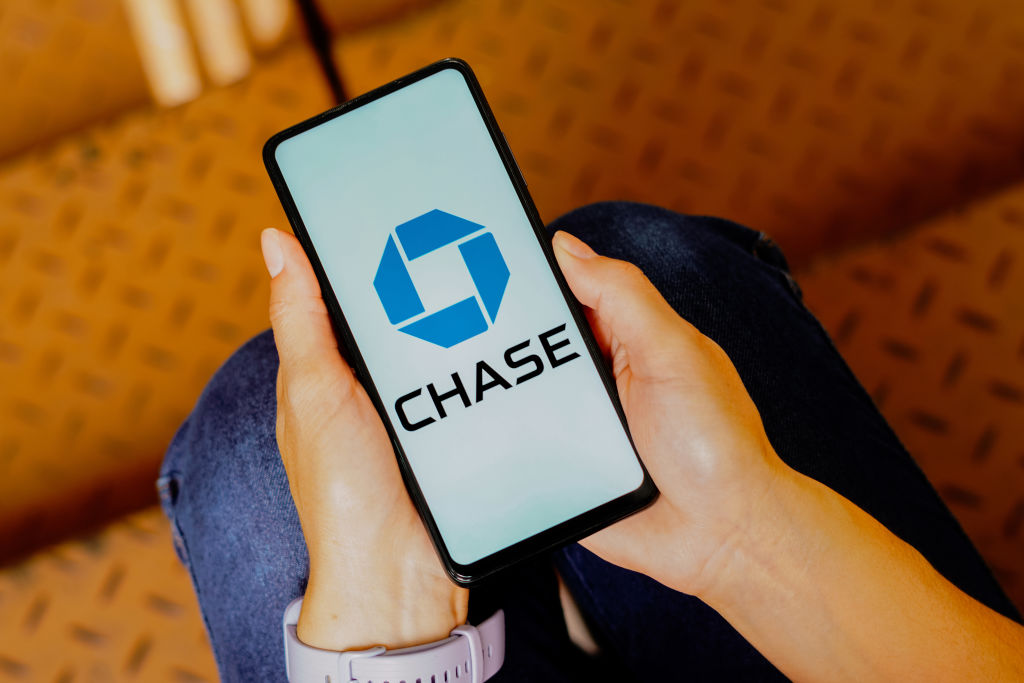Chase Bank Reports Duplicate Zelle Payments Glitch
Chase bank customers complained online about double payments and fees from the Zelle payment service.


Profit and prosper with the best of Kiplinger's advice on investing, taxes, retirement, personal finance and much more. Delivered daily. Enter your email in the box and click Sign Me Up.
You are now subscribed
Your newsletter sign-up was successful
Want to add more newsletters?

Delivered daily
Kiplinger Today
Profit and prosper with the best of Kiplinger's advice on investing, taxes, retirement, personal finance and much more delivered daily. Smart money moves start here.

Sent five days a week
Kiplinger A Step Ahead
Get practical help to make better financial decisions in your everyday life, from spending to savings on top deals.

Delivered daily
Kiplinger Closing Bell
Get today's biggest financial and investing headlines delivered to your inbox every day the U.S. stock market is open.

Sent twice a week
Kiplinger Adviser Intel
Financial pros across the country share best practices and fresh tactics to preserve and grow your wealth.

Delivered weekly
Kiplinger Tax Tips
Trim your federal and state tax bills with practical tax-planning and tax-cutting strategies.

Sent twice a week
Kiplinger Retirement Tips
Your twice-a-week guide to planning and enjoying a financially secure and richly rewarding retirement

Sent bimonthly.
Kiplinger Adviser Angle
Insights for advisers, wealth managers and other financial professionals.

Sent twice a week
Kiplinger Investing Weekly
Your twice-a-week roundup of promising stocks, funds, companies and industries you should consider, ones you should avoid, and why.

Sent weekly for six weeks
Kiplinger Invest for Retirement
Your step-by-step six-part series on how to invest for retirement, from devising a successful strategy to exactly which investments to choose.
Customers of Chase Bank and other financial institutions have benefited from the increased speed and convenience of new peer-to-peer payment services, but things don't always go smoothly.
After a swirl of online complaints, Chase Bank on Friday acknowledged a widespread Zelle glitch wreaking havoc on its customers' bank balances.
Chase Bank glitch results in duplicate fees, payments
JPMorgan Chase & Co. on Friday confirmed that random Chase Bank customers are seeing duplicate transactions and fees on their checking accounts, according to Marketwatch.
From just $107.88 $24.99 for Kiplinger Personal Finance
Become a smarter, better informed investor. Subscribe from just $107.88 $24.99, plus get up to 4 Special Issues

Sign up for Kiplinger’s Free Newsletters
Profit and prosper with the best of expert advice on investing, taxes, retirement, personal finance and more - straight to your e-mail.
Profit and prosper with the best of expert advice - straight to your e-mail.
Customers had complained on Twitter and other social-media outlets that they were seeing Zelle payments leaving their bank accounts twice. A JP Morgan Chase & Co. spokesperson shared, “We’re working to resolve the issue and will automatically reverse any duplicates and adjust any related fees.”
Chase told Marketwatch the duplicate payments issue is confined to its customers and doesn't extend to Zelle users that are customers of other banking institutions.
Six U.S. banks jointly own the Zelle payment service, which allows their customers to send and receive money directly to other Zelle users through a phone number or email address. This service has helped major banks bridge the gap between their old-fashioned wire or ACH transfers and newer, more convenient payment services like Venmo and PayPal.
The risks of peer-to-peer payment apps
More than 40% of Americans don’t use cash for any weekly purchases, according to Pew Research. and nearly 65% believe it’s either likely or very likely the U.S. will become a cashless society in their lifetimes, according to a Gallup poll from 2022.
Electronic payment devices have made it possible for even very small merchants to accept digital payments. Smartphone payment apps like Zelle, Venmo, Apple Pay, and Cash App enable users to split bills and more without opening their wallets.
But as electronic payment adoption increases, so do the risks of making a costly mistake or being scammed. In another recent Pew Research poll, 13% of payment app users reported they had been victimized by scams, while 11% reported that their accounts have been hacked.
Consider these tips to protect your money while using peer-to-peer payment apps:
- Always double check the payment recipient's name, email, or payment ID. It's so easy to mistype one character and instantly send money to a random stranger.
- Watch out for scammers pretending to be legitimate businesses or even a loved one and requesting money from you through a payment app.
- Protect your account with multi-factor authentication or a PIN, as an extra layer of security.
- Set up transaction alerts on your accounts to catch potential criminals before they drain your funds.
- Don't share bank authentication data, verification numbers and personal info with anyone who contacts you and requests it, even if you recognize the number. Instead, call them back at their official contact number to confirm a request is legitimate.
Related Content
Profit and prosper with the best of Kiplinger's advice on investing, taxes, retirement, personal finance and much more. Delivered daily. Enter your email in the box and click Sign Me Up.

Ben Demers manages digital content and engagement at Kiplinger, informing readers through a range of personal finance articles, e-newsletters, social media, syndicated content, and videos. He is passionate about helping people lead their best lives through sound financial behavior, particularly saving money at home and avoiding scams and identity theft. Ben graduated with an M.P.S. from Georgetown University and a B.A. from Vassar College. He joined Kiplinger in May 2017.
-
 Quiz: Do You Know How to Avoid the "Medigap Trap?"
Quiz: Do You Know How to Avoid the "Medigap Trap?"Quiz Test your basic knowledge of the "Medigap Trap" in our quick quiz.
-
 5 Top Tax-Efficient Mutual Funds for Smarter Investing
5 Top Tax-Efficient Mutual Funds for Smarter InvestingMutual funds are many things, but "tax-friendly" usually isn't one of them. These are the exceptions.
-
 AI Sparks Existential Crisis for Software Stocks
AI Sparks Existential Crisis for Software StocksThe Kiplinger Letter Fears that SaaS subscription software could be rendered obsolete by artificial intelligence make investors jittery.